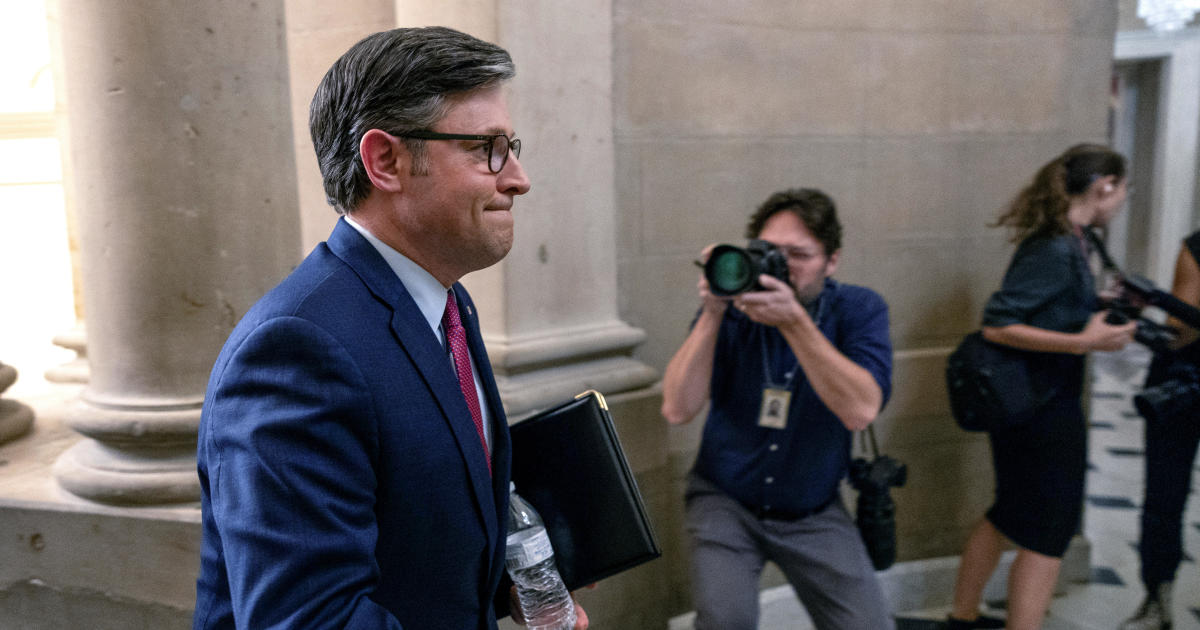House Republicans in Washington are moving quickly to pass a short-term spending bill after encountering opposition from conservative members of the Rules Committee. The bipartisan measure to keep the government open is facing challenges within the lower chamber, leading to a need for a fast-tracked solution.
The House Republicans are planning to push a three-month funding bill for a floor vote using a procedure called suspension of the rules, which requires a two-thirds majority for passage. This puts House Speaker Mike Johnson in a position where he must once again rely on Democrats to pass legislation.
House Majority Leader Steve Scalise, a Republican from Louisiana, has indicated that the bill will be brought up for a vote on Wednesday. This decision to bypass the Rules Committee comes after conservative members, such as Rep. Thomas Massie of Kentucky and Rep. Chip Roy of Texas, expressed their opposition to the measure.
The original plan was for the House Rules Committee to vote on approving the measure for a floor vote on Monday night. However, this vote was canceled after Massie and Roy made it clear that they would not support it. If the measure had come up for a floor vote under a rule, it would have only needed a simple majority to pass.
Rep. Jim McGovern, the committee’s top Democrat from Massachusetts, highlighted the need for Republicans to work with Democrats in order to keep the government open. House conservatives have been advocating for the lower chamber to pass individual appropriations bills to fund the government, rather than relying on short-term measures.
The argument against the short-term bill is that it sets up Congress to pass a massive spending bill, known as an “omnibus,” at the end of the year when lawmakers are eager to leave Washington for the holidays. Massie voiced his concerns about creating a potential shutdown crisis right before Christmas and suggested funding the government for a full year instead.
Johnson, the Louisiana Republican, revealed the new plan on Sunday after the rejection of his initial proposal. The new plan aims to fund the government at current levels through December 20, postponing the spending fight until after the November election. However, this approach also risks disrupting lawmakers’ holiday plans if they fail to reach another agreement to extend funding into the following year.
In a letter to his colleagues, Johnson emphasized that the three-month measure is the only viable option at this point. He described the legislation as a narrow, bare-bones continuing resolution that includes only essential extensions to prevent the Senate from introducing a bill with additional spending and unrelated provisions.
While continuing resolutions typically maintain funding levels, the three-month bill includes approximately $230 million in additional funding for the Secret Service following a recent assassination attempt against former President Donald Trump. The voting measure linked to the six-month funding legislation, which Democrats opposed, has been removed from the current bill.
Johnson acknowledged that the three-month solution may not be ideal, but it is the most sensible path forward given the circumstances. He stressed the importance of avoiding a government shutdown less than 40 days before a crucial election, describing it as an act of political malpractice. Trump had previously called for a shutdown if the SAVE Act, a voting measure, was not passed, despite noncitizens already being prohibited from voting in federal elections.
House Minority Leader Hakeem Jeffries and Senate Majority Leader Chuck Schumer, both representing New York, commended the bipartisan negotiations that led to the funding agreement. Schumer expressed optimism about the prospect of Congress passing the legislation during the current week, emphasizing that the agreement could have been reached earlier if not for partisan demands.
In conclusion, the efforts to pass a short-term spending bill to keep the government open have faced challenges within the House of Representatives. The decision to fast-track the bill and bypass the Rules Committee reflects the urgency to reach a solution before potential shutdown threats. With bipartisan negotiations ongoing, lawmakers are working to ensure the government remains funded while addressing concerns from both conservative and liberal members. The outcome of the upcoming vote will determine the immediate future of government funding and may impact the holiday plans of lawmakers as they navigate through the current political landscape.









